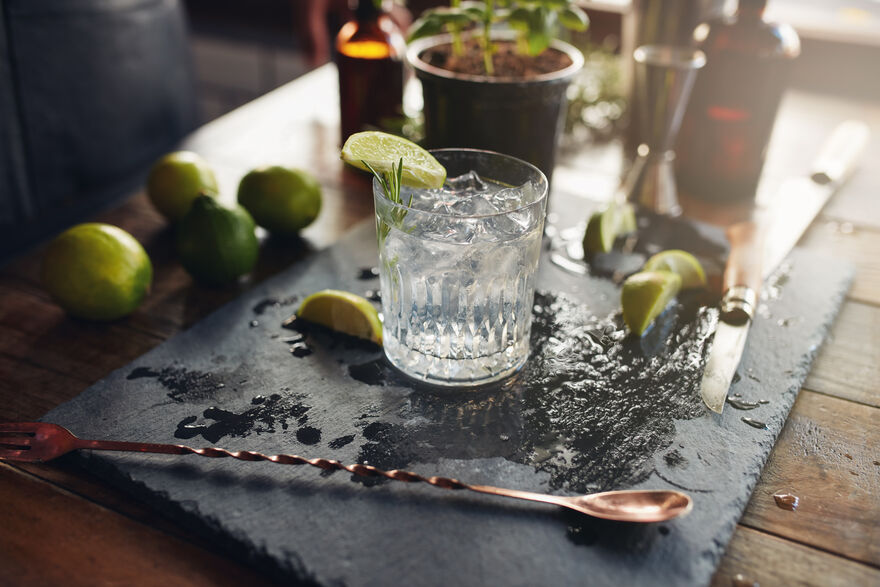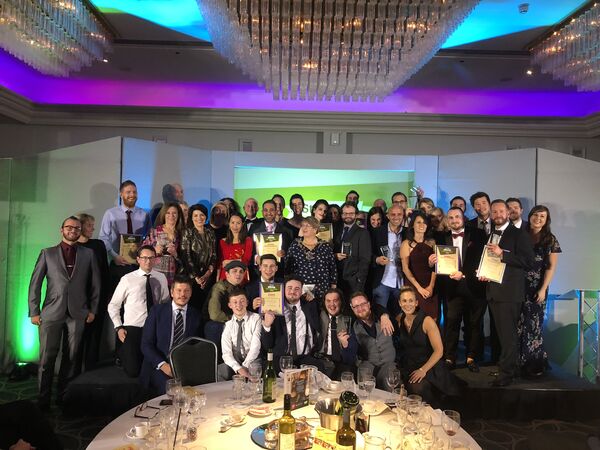SA Law is delighted to sponsor the St Albans Food and Drink Festival, so we thought we’d take a closer look at the business of food.
We chatted to three of our city’s leading restaurateurs to find out what they learned about building and maintaining a successful food and drink business. We touched on a wide range of topics and challenges, and came away with some fascinating insights. We hope you enjoy their interviews as much as their food!
The businesses
Chris Evans runs Hatch, a breakfast and brunch restaurant on Holywell Hill with associated takeaway in The Maltings. Chris has been in catering his whole life, starting as a part-time chef while studying property design and development.
Andrei Lussmann runs Lussmanns Sustainable Fish and Grill restaurants, which launched in 2002 and now spans five sites across Hertfordshire, including Waxhouse Gate in St Albans. Andrei has been in hospitality for 28 years, including time as an International Franchise Manager for Pizza Express.
Johnny Shepherd is a former Bake Off contestant who runs The Pudding Stop on Verulam Road and two ‘pudmobiles’ – one on Platform 4 of St Albans train station, and one opposite Harpenden library. A second shop is due to open in Harpenden shortly.
What’s a key tip for anyone who wants to launch a food or drink business?
Andrei: Naturally, there is a huge amount to think about, but perhaps the most important tip is to have a strong, realisable vision about what you want to achieve.
With Lussmanns, my objective was to create a restaurant in which I would feel comfortable eating on a regular basis. It would have all the essentials – great food quality, charming staff and good value for money – but I didn’t want it to be the next novelty dining experience. I wanted Lussmanns to be a reliable favourite that customers felt they could keep coming back to, whatever the occasion.
The challenge was competing with the well-known high street equivalents, but our independence means we can offer a bit more flair, personality and something a little bit different. To achieve this, we put a great deal of thought and effort into little things such as special dishes, the feel of our restaurants and curating a great beer menu. This independence and what we do with it gives us an edge. We set out to be a locals’ restaurant, and were really proud when The Times reviewed us as being ‘everything a modern, local restaurant should be.’
What are the challenges of building a food and drink business?
Chris: Launching a restaurant isn’t a complex business model, but many start-ups don’t realise how much work you need to put in. It takes a huge amount of effort and endurance to establish and grow a business in this sector, even if you’re starting small with just a coffee shop or small restaurant.
The biggest challenges occur when you decide to expand. When you first start the business, you have a great deal of control over the dining experience, and you’re there every day to make it happen – from the big things such as food quality to the little things that make the experience special. However, as soon as you open a second site, you have to rely on others to keep the momentum of the original idea going. You’re going to be splitting your time between sites, and also spending more time handling the administration. This is where many restaurant businesses run into trouble. The original idea and attention to detail become lost, and the customers don’t get that same special experience that made them want to come originally.
How important is employee development in a sector with such a high staff turnover?
Johnny: This is an extremely important aspect for me, and I dedicate a great deal of time to it. We pay very close attention to recruitment, with more emphasis on attitude, likeability and energy than CVs, skills and qualifications. From there, we prefer to promote from within as these are the people that know the business and live our culture. It’s great to know that we have leaders-in-waiting who are ready to step up for the next challenge. We encourage our managers and supervisors to learn about leadership, and regularly sit down and discuss the qualities and behaviours that good leaders portray.
Across the business, we have a team handbook, yet generally try to let people be themselves. We give them responsibilities, opportunities and the freedom to grow in a positive and supportive environment. We run monthly evaluations for all staff, which we use to calculate every team member’s share of the monthly tips. We also have a range of perks and rewards, such as free coffee and puds, four social events per year, and Perkbox for offers and discounts on high street and online brands.
I think we do a lot for a small business with 30 employees, but there’s always more we could do to improve. Our longest-serving team member has been with us since day one, which is very rare in the hospitality sector.
What insights can you share about getting the supplier relationship right?
Chris: Having great products is important, but I’m just as interested in the level of service I’m going to get. I like to build extremely close relationships with my suppliers. I want to know that if I’m in difficulty and have to call them at the last minute, they can deliver what I need. For this reason, I deliberately look for small to medium-sized suppliers – people I can know personally and have a good rapport with. It’s very much a gut feeling.
However, it’s not simply about what I’m getting. To achieve a good relationship, you need to respect the fact that suppliers are businesses that are trying to make money as well. The worst thing you can do is keep driving them down on price because it weakens the relationship, and they’ll be less inclined to go that extra mile when you need them most.
Do you make the most of technology, and how has it helped you?
Johnny: Technology is extremely useful, and we use a wide range of tools and services. We use Deputy software for resource management tasks such as rotas, clocking in and holiday requests. Izettle Pro connects sales from our shop and pudmobiles, so we always have instant sales data.
The team uses Monzo cards rather than petty cash, which is great because I just top the account up so team members can spend what they need. Similarly, we have one Uber account that can be used for business-related travel. We also use Perkbox for staff perks such as discounts, which team members can access via an app on their phone.
We of course take advantage of social media services like Facebook and Twitter to promote ourselves. Most importantly, our puddings are very Instagramable!
I think it’s about seeing what’s out there and how it can speed up, streamline or enhance what you do.
How prominent is sustainability on your business agenda?
Andrei: When Lussmanns launched in 2002, we wanted to prove it was possible for a restaurant to be sustainable and profitable. Sustainability increases your operational costs slightly, and takes up slightly more time, and many businesses are put off because this is a tough sector to operate in, particularly against large-chain competitors. Also, you have to bear in mind that most customers don’t choose a restaurant because it’s sustainable. They come because of the food, the staff and the cost. But there’s nothing to say you can’t get all of those right, and be sustainable at the same time.
Our day-to-day approach to sustainability covers most aspects of our business, including sustainable sourcing, 100% recycling and sustainable use of utilities and building materials. We also apply sustainability to recruitment and many other administrative aspects of running the business.
Over the years, our approach to sustainability became a benchmark across the UK, which led us to be a founding member of the Sustainable Restaurant Association in 2010. This not-for-profit organisation provides sustainability know-how to hospitality businesses. It now supports 8,000 member sites, from independent cafés to Michelin-starred restaurants. The cornerstone of the association is an audit undertaken every two years that examines 200 sustainability aspects, with a star-system award that businesses can use in their marketing.
However, most important is not to be seen as ‘preachy’. When you dine out, you don’t want sustainability thrust in your face, so our strategy has always been to promote it by stealth. If you read our menu, we add a few key sustainability messages, but the food and experience are always front and centre.
Thank you very much to Chris, Andrei and Johnny for sharing their insights.
The St Albans Food and Drink Festival runs from 26 September to 8 October.
The winners of the Food and Drink Awards were revealed on Monday 8 October. Congratulations to Hatch and Lussmanns for winning Best Café, Customer Service and Best Restaurant for a Special Occasion.
Update: On 3 October, Lussmanns marked the St Albans Food and Drink Festival with the return of their popular Dream Team Dinner, which brings local chefs together for an evening to create a unique culinary experience. The event was a huge success, raising £6,500 for Herts Young Homeless, an independent charity supporting vulnerable people across the region.





